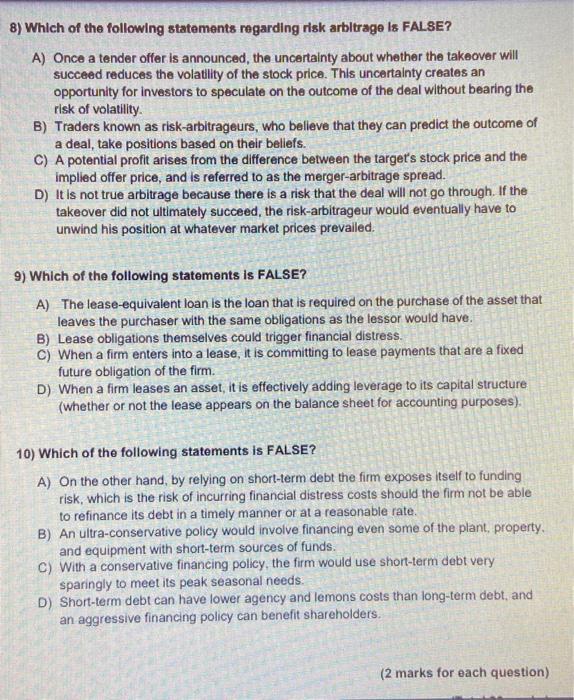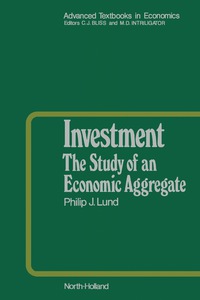8) Which of the following statements regarding risk arbltrage Is FALSE? A) Once a tender offer is announced, the uncertainty about whether the takeover will succeed reduces the volatility of the stock price. This uncertainty creates an opportunity for investors to speculate on the outcome of the deal without bearing the risk of volatility B) Traders known as risk-arbitrageurs, who believe that they can predict the outcome of a deal, take positions based on their beliefs. C) A potential profit arises from the difference between the target's stock price and the implied offer price, and is referred to as the merger-arbitrage spread. D) It is not true arbitrage because there is a risk that the deal will not go through. If the takeover did not ultimately succeed, the risk-arbitrageur would eventually have to unwind his position at whatever market prices prevailed. 9) Which of the following statements Is FALSE? A) The lease-equivalent loan is the loan that is required on the purchase of the asset that leaves the purchaser with the same obligations as the lessor would have. B) Lease obligations themselves could trigger financial distress. C) When a firm enters into a lease, it is committing to lease payments that are a fixed future obligation of the firm. D) When a firm leases an asset, it is effectively adding leverage to its capital structure (whether or not the lease appears on the balance sheet for accounting purposes). 10) Which of the following statements is FALSE? A) On the other hand, by relying on short-term debt the firm exposes itself to funding risk, which is the risk of incurring financial distress costs should the firm not be able to refinance its debt in a timely manner or at a reasonable rate. B) An ultra-conservative policy would involve financing even some of the plant, property, and equipment with short-term sources of funds. C) With a conservative financing policy, the firm would use short-term debt very sparingly to meet its peak seasonal needs. D) Short-term debt can have lower agency and lemons costs than long-term debt, and an aggressive financing policy can benefit shareholders. (2 marks for each question)







